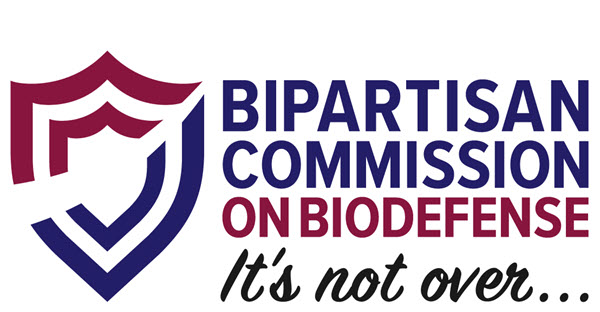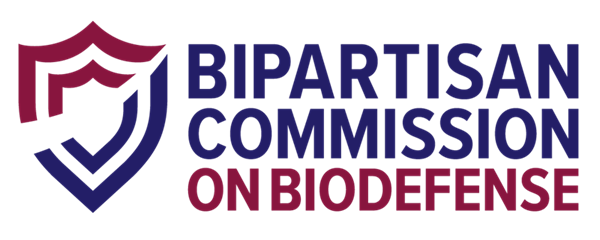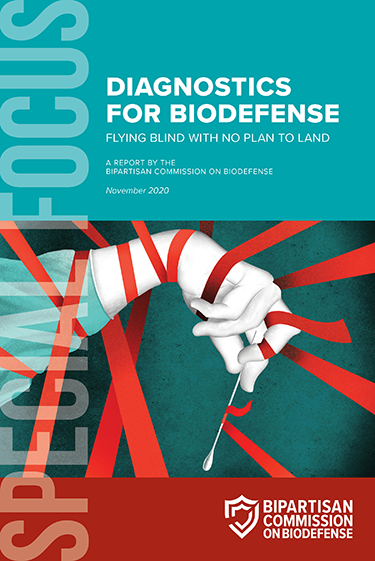- EXECUTIVE SUMMARY
- Charge
- Action Plan
- Recommendations for the Executive Branch
- Recommendations for the Legislative Branch
- NOTIONAL DASHBOARD
- SITUATION
- Flying Blind Without Diagnostics
- Flawed Emergency Use Authorization
- Botched Test
- Fractured Resources
- Low Priority
- IMPLEMENTATION
- Develop a National Plan for COVID-19 Testing
- Increase Reimbursement for Point-of-Care and Point-of-Need Tests and Increase Testing for Diseases Likely to Produce Widespread Infection in Society
- Purchase Viable Diagnostics for Biological Threats
- Articulate Acquisition Requirements for Diagnostic Tests
- Leverage Defense Research and Expertise
- CONCLUSION
- Public Expectations
- REFERENCES
Commissioners
Joseph I. Lieberman, Chair
Thomas J. Ridge, Chair
Thomas A. Daschle
James C. Greenwood
Kenneth L. Wainstein
Lisa O. Monaco
Ex Officio Members
Yonah Alexander, PhD
William B. Karesh, DVM
Rachel Levinson, MA
I. Lewis Libby, JD
Gerald W. Parker, DVM, PhD
George Poste, DVM, PhD, DSc
Tevi Troy, PhD
Commission Staff
Asha M. George, DrPH, Executive Director
Robert H. Bradley, Policy Associate
John T. O’Brien, Research Associate
Patricia de la Sota, Operations Manager
Ellen P. Carlin, DVM, Senior Advisor
Acknowledgments
We thank the anonymous scientists, company representatives, and policy specialists who provided their input at two roundtables we held to inform this paper. We extend special thanks to Dr. Toby Merlin, formerly of the Centers for Disease Control and Prevention, whose dedication to public health and diagnostic testing greatly influenced this report and the practical applications it contains. We appreciate the contributions of Dr. Jonathan Epstein of EcoHealth Alliance, Dr. Chris Hoefler of Draper, and Mr. Jacob Swett of the University of Oxford. We gratefully thank Dr. George Poste for his insight and advice, and the Commission’s other ex officio members, who provided review and comment. Additionally, we thank our donors and Hudson Institute, which serves as our fiscal sponsor.
Executive Summary
As with all large-scale events, novel coronavirus 2019 (COVID-19) reveals our national vulnerabilities. The pandemic casts a bright light on our limited capacity for diagnostic testing and our inability to conduct the necessary research to develop these tests quickly.
When a disease affects the United States, we turn to diagnostic tests first. We want to know what we are dealing with, what might kill the microorganism causing the disease, who has been infected, and how far and how fast it is spreading. Without that information, we fly blind. With a disease like COVID-19, caused by SARS-CoV-2 (a novel version of the Severe Acute Respiratory Syndrome (SARS) virus), the need for this knowledge is greater than ever before. Symptoms of COVID-19 vary greatly and often mimic those of the less deadly coronavirus infections and diseases caused by other pathogens (e.g., rhinoviruses, influenza). With decreased support for diagnostics research and development throughout the federal government, and the underlying assumption that diseases that begin to spread from other countries will not reach the United States, our Nation finds itself unable to track and control the spread of this disease.
The Administration and Congress should not wait until COVID-19 recedes in the United States to take up these recommendations. Instead, they should establish diagnostic testing capacity and support development of new tests to address COVID-19 now and for the pandemics to come. Despite progress made during the COVID-19 pandemic, we cannot expect to be ready for the next biological event without diagnostics.
Copyright © 2020 by the Bipartisan Commission on Biodefense. All rights reserved.
Cover image courtesy of Shutterstock.com.
Bipartisan Commission on Biodefense. Diagnostics for Biodefense – Flying Blind with No Plan to Land. Bipartisan Commission on Biodefense: Washington, DC. November 2020.


